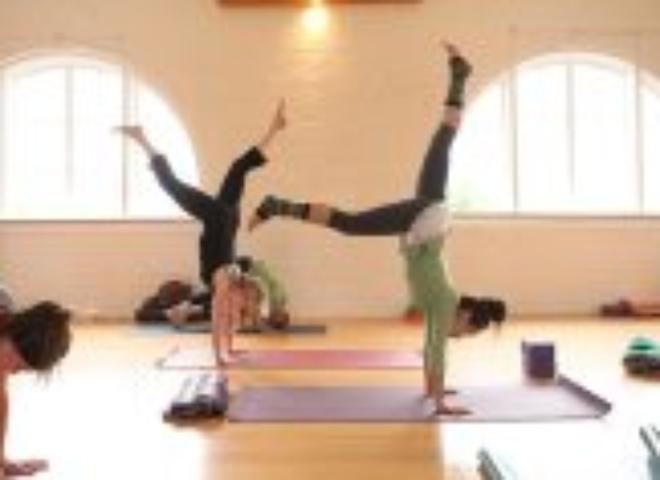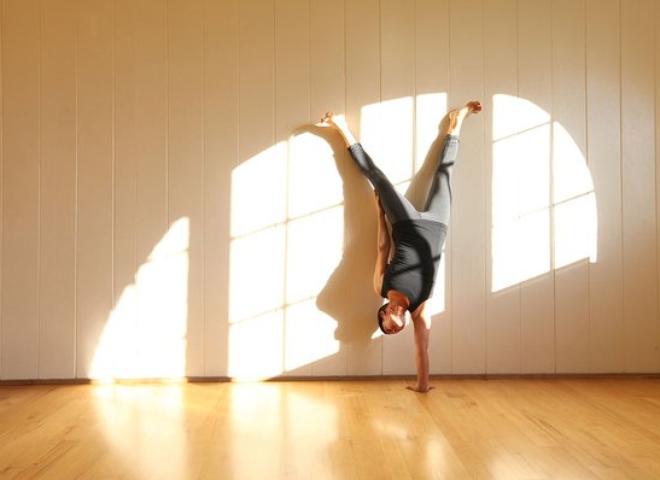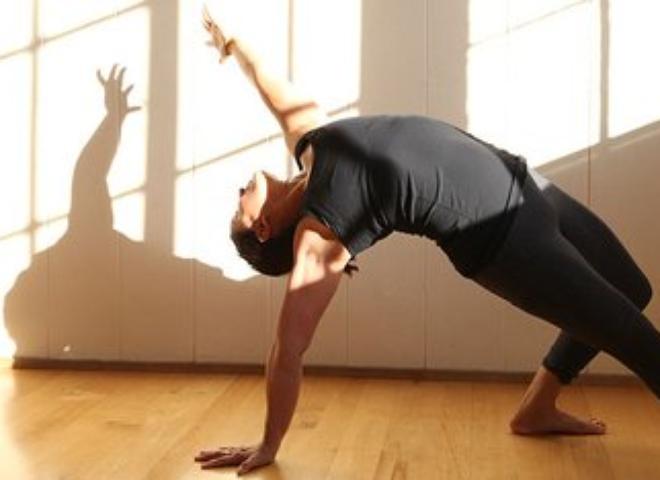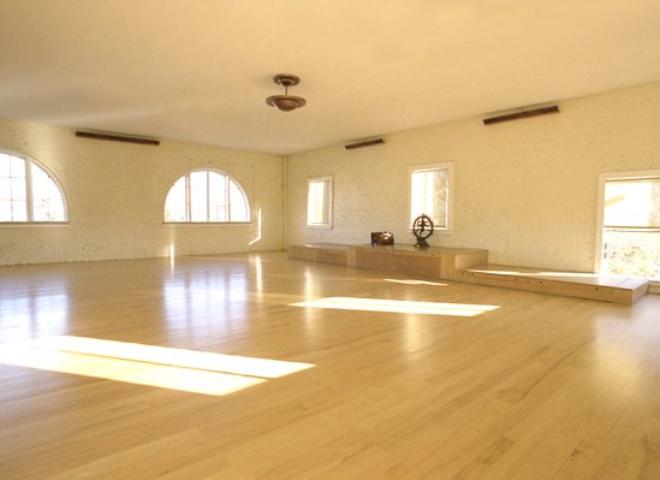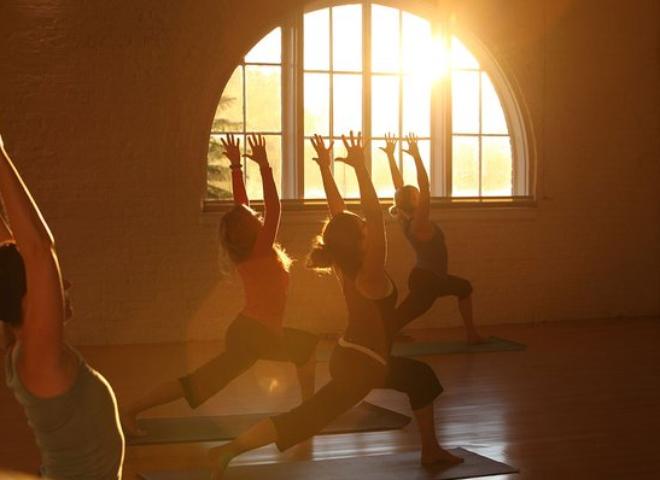City Yoga
City Yoga is a Hatha Yoga studio based in the traditions of Hindu Tantric philosophy. There are three fundamental currents of yoga philosophy: Classical, Advaita Vedanta and Tantra.
Classical yoga’s basic belief is that matter (prakriti) and spirit (parusha) are separate. The goal of classical yoga is to join with the divine spirit by transcending matter. This spiritual perfection can only be achieved by overcoming the inferiority of the body and its inherent desires.
Vedanta teaches that matter and spirit are one, and the fundamental problem of the human condition is that we assume them to be separate, in other words we live in a deluded state. The goal of Vedantic yoga is to transcend the illusion, maya in Sanskrit, which blinds us to our essential unity with the universe.
Tantra, the philosophy upon which City Yoga is built, is also non-dualistic but sees this quest differently. Tantra states that both spirit and matter are real phenomena, but not separate. In Tantra, matter is not inferior to the divine, but an aspect of it. One does not seek freedom from the body; one seeks freedom in the body. In the history of yogic thought, this is a revolutionary viewpoint.
At City Yoga both the spiritual and physical aspects of a Hatha yoga practice are fully integrated into the student’s way of life. The foundation of the practice are summarized in three Sanskrit words: Iccha, Jnana, Kriya- desire, knowledge, and action.
Desire is of primary importance because it addresses the intention of each student. It challenges the student to look inward; to transcend mere exercise and to use the yoga practice as a means to celebrate one’s interconnectedness with all life. When desire is combined with knowledge, of the correct alignment of the body and of the postures, the student confronts the choice to take action. The right choice is the one that is shri “that which is life-enhancing”. It enables students to consistently soar to new levels, not only on their mats, but also in their lives.
The aim of a City Yoga teacher is to help the student reveal his or her own potential. At City Yoga, individuals are offered a choice and a challenge to develop a strong Hatha practice and experience new levels of joy and well-being. Through mastery of asana and the practice of meditation, students undertake a powerful transformative journey.
Classical yoga’s basic belief is that matter (prakriti) and spirit (parusha) are separate. The goal of classical yoga is to join with the divine spirit by transcending matter. This spiritual perfection can only be achieved by overcoming the inferiority of the body and its inherent desires.
Vedanta teaches that matter and spirit are one, and the fundamental problem of the human condition is that we assume them to be separate, in other words we live in a deluded state. The goal of Vedantic yoga is to transcend the illusion, maya in Sanskrit, which blinds us to our essential unity with the universe.
Tantra, the philosophy upon which City Yoga is built, is also non-dualistic but sees this quest differently. Tantra states that both spirit and matter are real phenomena, but not separate. In Tantra, matter is not inferior to the divine, but an aspect of it. One does not seek freedom from the body; one seeks freedom in the body. In the history of yogic thought, this is a revolutionary viewpoint.
At City Yoga both the spiritual and physical aspects of a Hatha yoga practice are fully integrated into the student’s way of life. The foundation of the practice are summarized in three Sanskrit words: Iccha, Jnana, Kriya- desire, knowledge, and action.
Desire is of primary importance because it addresses the intention of each student. It challenges the student to look inward; to transcend mere exercise and to use the yoga practice as a means to celebrate one’s interconnectedness with all life. When desire is combined with knowledge, of the correct alignment of the body and of the postures, the student confronts the choice to take action. The right choice is the one that is shri “that which is life-enhancing”. It enables students to consistently soar to new levels, not only on their mats, but also in their lives.
The aim of a City Yoga teacher is to help the student reveal his or her own potential. At City Yoga, individuals are offered a choice and a challenge to develop a strong Hatha practice and experience new levels of joy and well-being. Through mastery of asana and the practice of meditation, students undertake a powerful transformative journey.
